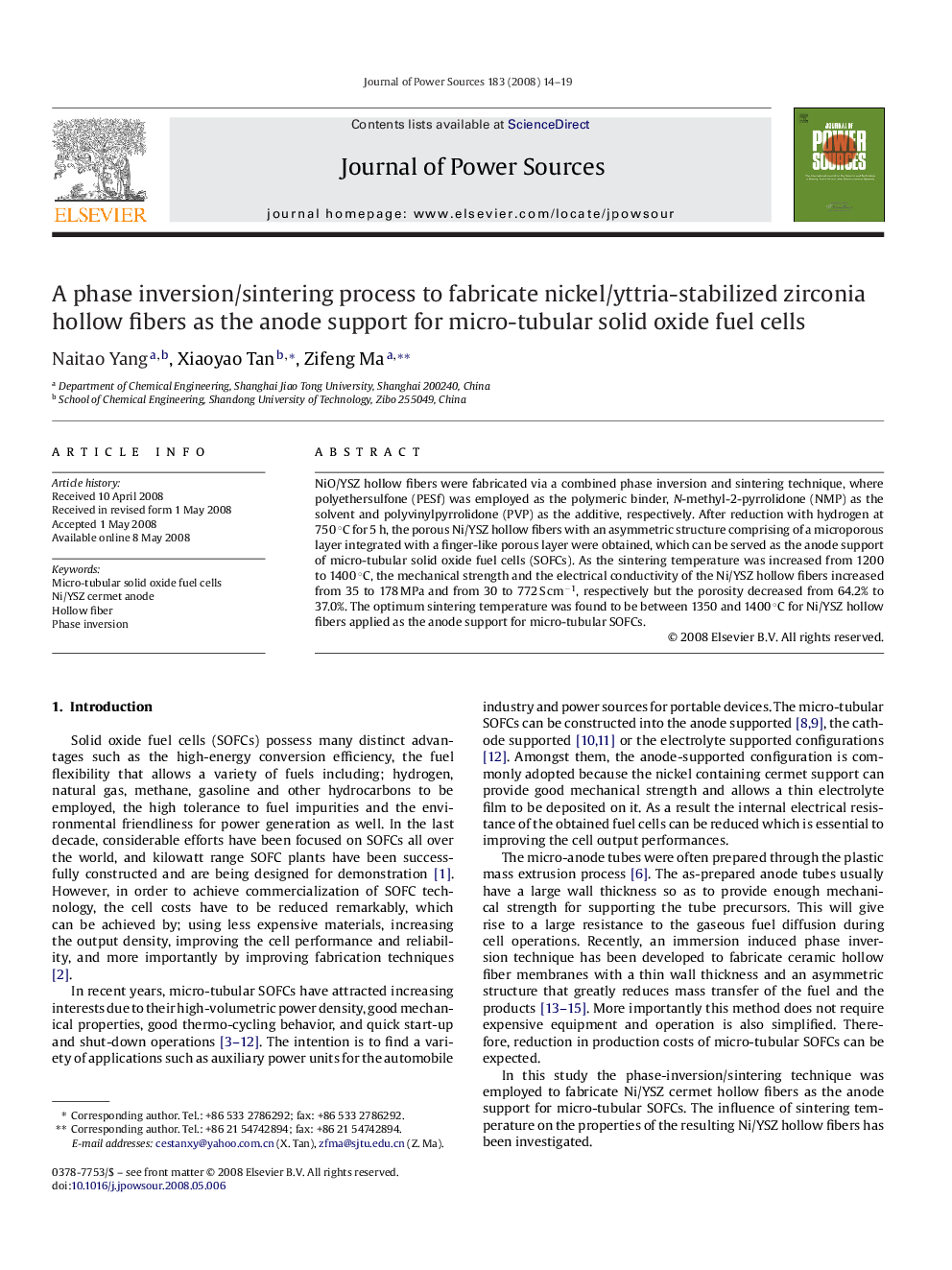| کد مقاله | کد نشریه | سال انتشار | مقاله انگلیسی | نسخه تمام متن |
|---|---|---|---|---|
| 1285374 | 973139 | 2008 | 6 صفحه PDF | دانلود رایگان |

NiO/YSZ hollow fibers were fabricated via a combined phase inversion and sintering technique, where polyethersulfone (PESf) was employed as the polymeric binder, N-methyl-2-pyrrolidone (NMP) as the solvent and polyvinylpyrrolidone (PVP) as the additive, respectively. After reduction with hydrogen at 750 °C for 5 h, the porous Ni/YSZ hollow fibers with an asymmetric structure comprising of a microporous layer integrated with a finger-like porous layer were obtained, which can be served as the anode support of micro-tubular solid oxide fuel cells (SOFCs). As the sintering temperature was increased from 1200 to 1400 °C, the mechanical strength and the electrical conductivity of the Ni/YSZ hollow fibers increased from 35 to 178 MPa and from 30 to 772 S cm−1, respectively but the porosity decreased from 64.2% to 37.0%. The optimum sintering temperature was found to be between 1350 and 1400 °C for Ni/YSZ hollow fibers applied as the anode support for micro-tubular SOFCs.
Journal: Journal of Power Sources - Volume 183, Issue 1, 15 August 2008, Pages 14–19